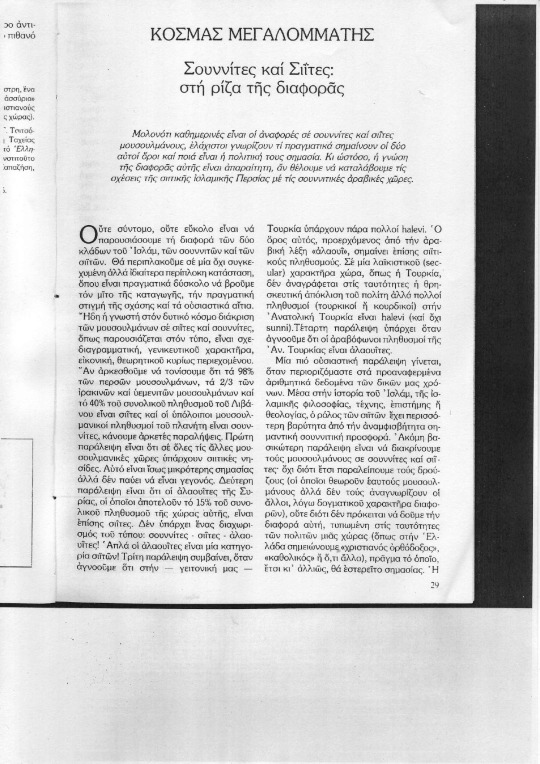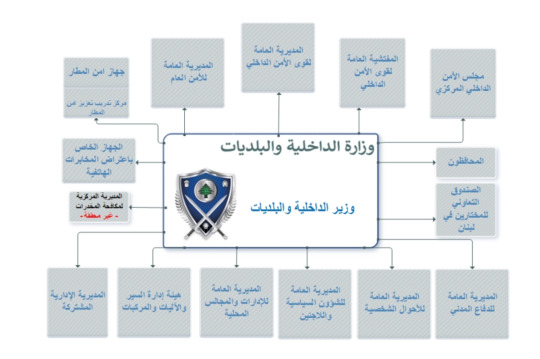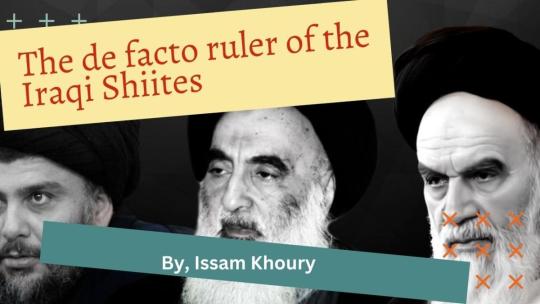#shiites
Explore tagged Tumblr posts
Text
DAILY CALIPHATE HEADLINES:
Officers Of Hamas Security Apparatuses Trained In Qatar;
Pro-Islamic State (ISIS) Media Groups Condemn Hamas For Alliance With Shi'ite Iran;
Claim Shi'ites Greater Enemy Than Jews;
Discredit Hamas Leaders For Staying In Qatar
Houthi-Yemeni Expert: We Can Shut Down Bab El-Mandeb Strait;
Pakistani Editorial: US Fomenting War With Houthis To Distract From Israel's Actions In Gaza;
Hamas Official Baraka: Lebanon Should Transfer Its Palestinians To Israeli Border;
Fmr State Advisor Alghabra Clashes With BBC Host: UNRWA Employees Carried Out 7/10 Attacks;
ISIS Khurasan Magazine Questions Hamas For Starting Gaza War
Fmr Iranian Official: Iran Is Behind Every Bullet, Rocket, UAV Fired Against Israel
#secular-jew#israel#jewish#judaism#israeli#jerusalem#diaspora#secular jew#secularjew#islam#Islamists#islamic jihad#Hamas#gaza#Houthis#Pakistan#Yémen#memri#shiites#Shiite#antisemitism#islamism#judea#tel aviv#vieformidable
12 notes
·
View notes
Note
You said you read a lot about Arabia and Islam and I have a random question that you might be able to help with. I know that for centuries there was a caliph who was like the leader of muslims and I always wondered why if the king of saudi arabia is in charge of the holy sites why isn't he considered the caliph or declared himself as the caliph?
It's a good question and there are a number of complex reasons why that didn't/doesn't happen which require a much deeper dive, but I'll try to give a simplified answer. First of all, the caliph was the spiritual leader of the entire Muslim world and while the caliphs also had a political role as successors to Muhammad, that role changed dramatically through the centuries as the Muslim world grew, Islamic empires rose and fell, and Islam itself branched into different sects. The last widely-recognized caliphs were the Sultans of the Ottoman Empire, but even in the last decades of the Ottoman Empire, there were disagreements throughout the Muslim world about the legitimacy of anyone's claim on the caliphate. The two main branches of Islam -- Sunni and Shia -- have entirely different ideas on how a caliph should be chosen and who the caliph is chosen by.
When the Ottoman Empire collapsed after the end of World War I, the Sharif of Mecca -- Hussein, a direct descendant of Muhammad as the leader of Hashemite dynasty (and great-great grandfather of the current Jordanian King Abdullah II) -- attempted to declare himself the new caliph, but was not accepted. In many ways, it was like a modern European monarch suddenly declaring himself the Pope; that's just not how most Muslims believed the spiritual leader of the Islamic faith should be determined. Plus, Hussein only had a tenuous hold on Islam's holiest sites (Mecca, Medina, and, at the time, Jerusalem) following World War I, and Abdul Aziz Ibn Saud was in the process of taking control of what is now Saudi Arabia. Once Ibn Saud became King of Saudi Arabia, he took over as "Custodian of the Two Holy Mosques" (Mecca and Medina), but the idea of declaring himself caliph was out of the question. Ibn Saud and the vast majority of his supporters were members of the deeply conservative, puritanical Wahhabi sect of Sunni Islam and they believed that the caliph was chosen by all Muslims, not declared by one person. As the guardian of Islam's two holiest sites, the King of Saudi Arabia is responsible for ensuring that all Muslims capable of making the Hajj pilgrimage to Mecca (and the lesser pilgrimage to Medina) can do so. Unilaterally declaring himself the caliph would undoubtedly have alienated many Muslims, particularly those from countries outside of Saudi Arabia and especially Shiites. In other words, it's not within the power of the King of Saudi Arabia to give himself (or any other individual) the title of caliph, and he'd probably get just as much resistance from his fellow Saudis if he tried to do so. There's no way that the Ikhwan -- the ascetic tribes and Bedouins who largely acted as Ibn Saud's military forces as he conquered most of the Arabian Peninsula in the first half of the 20th Century -- would have remained loyal to the first Saudi King if he had unilaterally proclaimed himself the caliph.
The Muslim people around the world -- the ummah -- haven't been united since the death of Muhammad, which is when the divide between Shia and Sunnis began over the true successor of the Prophet, so any caliph is going to be seen as illegitimate by a significant percentage of the population. And in the modern world, any political aspects of a potential caliph are going to be superseded by the temporal responsibilities of the heads of state or heads of government in every country, no matter how large or devout their Islamic population might be. So, a modern caliph would really have to be a spiritual leader, not a political one -- very similar to the Pope. But the Pope also has the unique position of being the head of state (and, really, an absolute monarch) of a sovereign nation. The Islamic world is too fragmented and divided by opposing theologies to allow a modern-day caliph to govern, command military forces, and provide religious guidance in the same manner as Muhammad's immediate successors or even during the 600+ years of Ottoman Sultans. A caliph would effectively have the same standing today as a modern-day Doge of Venice or Japanese Shogun; it's an anachronistic position of leadership and somewhat outdated concept in the world we currently live in -- you know, like the Iowa Caucus or Electoral College.
#History#Politics#Political Leaders#Caliph#Caliphate#Islam#Muslims#Islamic world#Ummah#Saudi Arabia#Muhammad#Sunni-Shia Split#Shiites#Sunnis#Ottoman Empire#Ottoman Sultans#King of Saudi Arabia#Custodian of the Two Holy Mosques
9 notes
·
View notes
Video
youtube
Голубая мечеть / The Blue Mosque
#ереван#армения#мечеть#ислам#шииты#мусульмане#интерьер#yerevan#armenia#mosque#islam#shiites#interiors
2 notes
·
View notes
Text

Opening of mass grave containing ISIS massacre victims in Kora Elo Enter starts
In the summer of 2014, ISIS launched invasion attacks in Iraq and carried out many massacres and left hundreds of mass graves behind.
Especially after the Mosul province fell into the hands of ISIS, great massacres were committed against the Shiites in Tal Afar and the Yazidis in Shengal (Sinjar).
One of the biggest massacres of the time was perpetrated in Kora Elo Enter in Iyadi district of Tal Afar.
Thousands of Yazidis from Shengal and Shiites from Tal Afar were massacred and buried in this mass grave. According to eyewitnesses, approximately 1500-2000 bodies were buried in this mass grave. Families of the disappeared have been waiting for 10 years for this mass grave to be opened.
Under the supervision of the Department for the Opening and Protection of Mass Graves and UNITAD, the opening of the mass grave in Kora Elo Enter started today.
#israel is isis#isis#Kora Elo Enter#iraqi#iraq war#operation iraqi freedom#iraq news#iraq#mosul#shiites#talafar#yazidis#shengal#sinjar#lyadi#unitad#koraelo#ausgov#politas#auspol#tasgov#taspol#australia#fuck neoliberals#neoliberal capitalism#anthony albanese#albanese government#class war#oppression#repression
1 note
·
View note
Text
Σουννίτες και Σιίτες: στη ρίζα της διαφοράς, του Κοσμά Μεγαλομμάτη
Σουννίτες και Σιίτες: στη ρίζα της διαφοράς, του Κοσμά Μεγαλομμάτη – Εποπτεία 119, Ιανουάριος 1987, σελ. 29-37
Sunnis and Shiites: at the root of the dispute, by Cosmas Megalommatis: Epopteia (‘Overview’) 119, January 1987, p. 29-37
Сунниты и шииты: в основе спора, (автор:) Кузьма Мегаломматис: Эпоптея («Обзор») 119, январь 1987 г., с. 29-37
===============
Σχόλιο
(σχετικά με την ηλεκτρονική αναδημοσίευση του αρχικά προ 36 ετών δημοσιευμένου άρθρου μου) 21 Δεκεμβρίου 2023
Αναδημοσιεύοντας στο Ιντερνέτ αυτό το κείμενο, το οποίο έγραψα περαστικός από την Αθήνα τον Οκτώβριο ή τον Νοέμβριο του 1986, ασφαλώς και εντυπωσιάζομαι. Πριν από 36 χρόνια, είχα ήδη ολοκληρώσει πέντε-έξι χρόνια μεταπτυχιακών σπουδών (σε Παρίσι. Λονδίνο και Βρυξέλλες) ειδικευόμενος σε ασσυριολογία, αιγυπτιολογία, χιττιτολογία, ιρανολογία, μυστηριακές θρησκείες της Ύστερης Αρχαιότητας, Γνώση, Μανιχεϊσμό, θρησκευτικό συγκρητισμό, και καταγωγή των Χριστιανισμών. Είχα ήδη συμπληρώσει τρία χρόνια έρευνας σε Ανατολική Τουρκία, Συρία, Ισραήλ, Ιράκ, Ιορδανία, Κουβέιτ, και Ιράν, ετοιμάζοντας την διδακτορική διατριβή μου στην (Δυτική) Γερμανία. Και είχα μόλις αρχίζει να μελετώ το Ισλάμ, Ισλαμική Ιστορία, ισλαμικές επιστήμες, τέχνες, σοφία και μυστικισμό, ξεκινώντας με μαθήματα στη Σχολή (Μεντρέσα) Σουχάντα του Αγιατολλάχ Γιάχγυα Αλαμέχ Νουρί (σχετικά: https://www.bbc.com/persian/iran/story/2008/01/080119_mf_nouri; σε φαρσί).
Όταν λοιπόν έγραψα αυτό το άρθρο, είχα παύσει να είμαι χριστιανός ορθόδοξος και ήμουν άθρησκος πολίτης της Ελλάδας (επισήμως – αυτό αναφερόταν στην ταυτότητά μου). Είχα αρχίσει να εξοικειώνμαι με το Ισλάμ ως λαϊκή θρησκεία και καθημερινή ζωή, δοξασίες και λατρεία, είχα αρχίσει να αντιλαμβάνομαι το χάος που χωρίζει από την ιστορική αλήθεια και τους δυτικούς ισλαμολόγους και τους μουσουλμάνους θεολόγους, και είχα αρχίσει να καταλαβαίνω το πόσο πολυδιάστατο ιστορικό θέμα είναι το Ισλάμ. Αλλά σε καμμία περίπτωση τότε δεν θα πίστευα ότι μόλις έξι χρόνια μετά την συγγραφή του εν λόγω άρθρου εκ μέρους μου θα αποδεχόμουν το Ισλάμ και θα γινόμουν μουσουλμάνος. Μάλλον θα γελούσα, αν κάποιος μου έλεγε τότε κάτι τέτοιο, έτσι προφητεύοντας το μέλλον.
Εκείνη η περίοδος χαρακτηρίστηκε από την τάση μου να πάρω ίσες αποστάσεις από τα πάντα, ώστε να εξουδετερώσω ξένες επιδράσεις επάνω μου και να δω την ιστορική εξέλιξη αντικειμενικά και ψυχρά, ή μάλλον (για να είμαι ακριβής) ζεστά, δηλαδή αγαπώντας το αντικείμενο της έρευνας και της μελέτης μου. Έτσι, απόλυτα εκτιμωντας το βάρος της ιστο��ικής παράδοσης της Ανατολής (δηλαδή Μεσοποταμία, Αίγυπτος, Ανατολία, Χαναάν, και Ιράν), το οποίο πέρασε μέσα στο τότε κυοφορούμενο Ισλάμ, κατάφερα να διακρίνω και να επισημάνω την ουσία των καταστάσεων και περιστάσεων που προκλήθηκαν γύρω αποό τον προφήτη Μωάμεθ - κάτι το οποίο κανένας δυτικός ισλαμολόγος και κανένας μουσουλμάνος θεολόγος δεν μπόρεσε να εντοπίσει: όταν γύρω από τον ετοιμοθάνατο Μωάμεθ δύο ομάδες πιστών συγκρούονταν για το ποιον θα ακολουθούσαν, 4000 χρόνια σουμεριακής, ακκαδικής, ασσυροβαβυλωνιακής και ιρανικής ιστορίας, παράδοσης, κληρονομιάς, αυτοκρατορικού ουνιβερσαλισμού, και εσχατολογικών προσδοκιών βάρυναν πάνω στις καρδιές και τα μυαλά τους, χωρίς εκείνοι να το αντιλαμβάνονται.
Είμαι λοιπόν σήμερα στα 67 μου πολύ χαρούμενος βλέποντας ότι στα 30 μου, με λίγο Ταμπαρί και λιγώτερο Τερμεζί, είχα καταφέρει να γράψω την επάνω αριστερά παράγραφο της σελίδας 31, η οποία αρχίζει με τις λέξεις: "το περίπλοκο της όλης υπόθεσης". Σήμερα, μουσουλμάνος και όχι άθρησκος, όχι μόνον δεν θα άλλαζα ούτε μία λέξη στην παράγραφο αυτή, αλλά επιπλέον θα έλεγα ότι η παρατήρηση αυτή αποτελεί την μόνη δυνατή βάση αντίληψης, κατανόησης και αποτιμησης του Ισλάμ και της εν γένει κυοφορίας και γέννησής του. Όλα τα άλλα όλων των μουσουλμάνων θεολόγων, αφελών μέσα στην αμορφωσιά και την επιπολαιότητά τους, και όλων των δυτικών ισλαμολόγων, δηλητηριασμένων μέσα στο αντι-χριστιανικό, αντι-ισλαμικό και αντι-θεϊκό μίσος τους, είναι απλώς παιδαριώδη και ασυνάρτητα. Μη βιαστείτε να νομίσετε ότι στην παράγραφο αυτή θα βρείτε όλη την Αλήθεια! Όμως σίγουρα θα βρείτε τους παράλληλους δρόμους τους οποίους πρέπει να βαδίσετε για να φθάσετε.
Υπάρχουν δύο μικρά τυπογραφικά λάθη (τότε τα κείμενα παραδίδονταν ως απλά χειρόγραφα και εύκολα ένα νεοελληνικό υ συγχέεται με ένα ν, σε επισεσυρμένη γραφή, όταν ο γράφων είναι μάλιστα βιαστικός. Όταν μάλιστα η επιμέλεια κειμένου γίνεται από άτομο που δεν κατέχει το θέμα, τότε ένα μικρό λάθος διπλασιάζεται. Οι δύο τελευταίες λέξεις στην πρώτη γραμμή της δεξιάς στήλης στην τελευταία σελίδα πρέπει να αναγνωσθούν ως: «των Χαουαρίτζ». Προφανώς, ο επιμελητής κειμένου, αφού διάβασε το όνομα ως «Χαοναρίτζ» (η σειρά «αουα» θα φάνηκε ως κάτι το πολύ ξενικό για ένα Νεοέλληνα), το εξέλαβε ως όνομα άνδρα, ενώ είναι όνομα ομάδας: οι Χαουαρίτζ (Khawarij ή Kharijites/ الخوارج).
Σήμερα, 36 χρόνια μετά, παρά τον αναγκαστικό συγχρωτισμό με μουσουλμάνους (εντός του πλαισίου της παγκοσμιοποίησης) και παρά τις ηυξημένες σχέσεις της Ελλάδας με αρκετά μουσουλμανικά κράτη, η μεροληπτική και τυφλή Ελλάδα των αμόρφωτων ψευτο-πανεπιστημιακών και των άξεστων δήθεν γεωπολιτικών αναλυτών που ξερνάνε απόβλητα και παραλογισμούς στις τηλεοράσεις, στα ραδιόφωνα και στο Ιντερνέτ, η κατάσταση δεν έχει σε τίποτα αλλάξει. Η λέξη «Χαουαρίτζ» φέρνει ελάχιστα αποτελέσματα σε μία online search, και φυσικά δεν υπάρχει καν λήμμα στην ελληνική Wikipedia παρά το γεγονός ότι τα α��τίστοιχα λήμματα είναι μεγάλα (Hâricîler/Хариджиты/哈里吉派/خوارج) όπως άλλωστε πρέπει.
------------------------
Comment
(about the online republication of my article, which was originally published before 36 years) 21 December 2023
Republishing on the Internet this text, which I wrote when passing from Athens in October or November 1986, I am certainly impressed. 36 years ago, I had already completed five or six years of postgraduate studies (in Paris, London and Brussels) specializing in Assyriology, Egyptology, Hittitology, Iranology, Late Antiquity mystery religions, Gnosticism, Manichaeism, religious syncretism, and the origins of Christianity. I had already completed three years of research in Eastern Turkey, Syria, Israel, Iraq, Jordan, Kuwait, and Iran while preparing my PhD thesis in (West) Germany. I had just begun to study Islam, Islamic history, Islamic sciences, arts, wisdom & mysticism, starting at the Madrasah Shuhada of Ayatollah Yahya Alameh Nouri (https://www.bbc.com/persian/iran/story/2008/01/080119_mf_nouri; in Farsi).
So, when I wrote this article, I had ceased to be an Orthodox Christian and I was an 'irreligious' Greek citizen (officially; it was mentioned on my identity card). I had started to familiarize myself with Islam at the level of popular religion and daily life, belief and cult; I had begun to perceive the chaos that separates the historical truth from the Western Islamologists and from the Muslim theologians; in addition, I had commenced to fathom what a multidimensional historical subject Islam is. But in no way would I then have thought that just six years after writing the article in question I would accept Islam and become a Muslim. I would have probably laughed if someone had said something like that to me at the time, thus foreseeing the future.
That period was characterized by my inclination to take equal distances from everything, in order to neutralize external influences on me and to see the historical development objectively and 'coldly' (or rather, to put it better, 'warmly'; namely expressing deep love for the object of my research and study). Consequently, comprehensively appreciating the weight of the historical tradition of the Orient (i.e., Mesopotamia, Egypt, Anatolia, Canaan, and Iran), which was introduced into the then-embryonic Islam, I was able to discern and comprehend the essence of all the situations and the circumstances, which arose around the prophet Muhammad - something that no Western Islamologist and no Muslim theologian managed to detect: when around the dying Muhammad two groups of believers clashed over who to follow, 4000 years of Sumerian, Akkadian, Assyrian-Babylonian and Iranian history, tradition, heritage, imperial universalism, and eschatological expectations weighed upon their hearts and minds, without them understanding it.
So, today at 67, I am very happy to see that, when I was 30, having little knowledge of Tabari and even less of al-Tirmidhi, I managed to write a text like that of the top left paragraph of page 31, which begins with the words: "the complexity of the whole affair". Today, being a Muslim and not an irreligious man, not only would I not change a single word in this paragraph, but I would also say that this observation is the only possible foundation for the accurate perception, comprehension and evaluation of Islam, and of the entire process of its inception and emergence. All the rest, said or written by either the Muslim theologians, who are gullible in their ignorance and frivolity, or the Western Islamologists, who are poisoned in their anti-Christian, anti-Islamic and anti-Godly hatred, is just childish and nonsensical. Do not come fast to the conclusion that in this paragraph you will find the entire Truth! All the same, you will definitely find the parallel roads that you have to walk in order to get there.
There are two small typographical errors (at the time, the texts were submitted as manuscripts, and a Modern Greek -u can be easily confused with a -n, in cursive writing, particularly when the author writes fast. When the editing of the text is done by a person, who does not know the subject, then a small error is doubled. The last two words on the first line of the right-hand column on the last page should be read as: "of the Khawarij". Apparently the copy editor, having absolutely misread the name as "Khaonarij" (the sequence "awa" being apparently too alien for a Modern Greek), considered it as the name of a man, whereas it is that of a group: the Khawarij (Khawarij or Kharijites/ الخوارج).
Today, 36 years later, despite the forced acculturation (within the globalization context) and in spite of Greece's increased relations with several Muslim states, the biased and blind Greek state infested with uneducated pseudo-academics and uncouth, fake geopolitical analysts, who spew rubbish and nonsense on TV channels, radio programs, and on the web, the situation has not changed at all. The word " Khawarij", written in Greek, brings up very few results in an online search, and of course, there is not even an entry in the Greek Wikipedia despite the fact that the respective entries are as long (Hâricîler/Хариджиты/哈里吉派/خوارج) as they should be.
----------------------------
Комментарий
(об онлайн-переиздании моей статьи, первоначально опубликованной до 36 лет) 21 декабря 2023 г.
Перепечатывая в Интернете этот текст, который я написал, проезжая из Афин в октябре или ноябре 1986 года, я, конечно, впечатлен. 36 лет назад я уже закончил пять или шесть лет аспирантуры (в Париже, Лондоне и Брюсселе) по ассириологии, египтологии, хеттитологии, иранологии, мистическим религиям поздней античности, гностицизму, манихейству, религиозному синкретизму и истокам христианства. Я уже провел три года исследований в Восточной Турции, Сирии, Израиле, Ираке, Иордании, Кувейте и Иране, одновременно готовя докторскую диссертацию в (Западной) Германии. Я только начал изучать ислам, исламскую историю, исламские науки, искусство, мудрость и мистицизм, начиная с медресе Шухада аятоллы Яхья Аламе Нури (https://www.bbc.com/persian/iran/story/2008/01). /080119_mf_nouri; на фарси).
Итак, когда я писал эту статью, я перестал быть православным христианином и был «нерелигиозным» гражданином Греции (официально это было указано в моем удостоверении личности). Я начал знакомиться с исламом на уровне популярной религии и повседневной жизни, верований и культов; Я начал осознавать хаос, который отделяет историческую правду от западных исламологов и мусульманских богословов; кроме того, я начал понимать, каким многомерным историческим субъектом является ислам. Но ни в коем случае я бы тогда не мог подумать, что всего через шесть лет после написания рассматриваемой статьи я приму ислам и стану мусульманином. Я бы, наверное, рассмеялся, если бы кто-то сказал мне тогда что-то подобное, предвидя таким образом будущее.
Этот период характеризовался моей склонностью отходить от всего на равной дистанции, чтобы нейтрализовать внешние воздействия на меня и видеть историческое развитие объективно и «холодно» (или, лучше сказать, «тепло», а именно выражая глубокую любовь для объекта моего исследования и изучения). Таким образом, всесторонне оценивая вес исторической традиции Востока (т. е. Месопотамии, Египта, Анатолии, Ханаана и Ирана), которая была внедрена в тогда еще зарождающийся ислам, я смог различить и понять суть всех ситуации и обстоятельства, возни��шие вокруг пророка Мухаммеда - то, что не удалось обнаружить ни одному западному исламологу и ни одному мусульманскому богослову: когда вокруг умирающего Мухаммеда две группы верующих спорили о том, кому следовать, 4000 лет шумерской, аккадской, ассирийско-вавилонской и иранской истории, традиций, наследия, имперского универсализма и эсхатологических ожиданий легли бременем на их сердца и умы, хотя они этого и не поняли.
Итак, сегодня, когда мне 67 лет, я очень рад это видеть, когда мне было 30, имея мало знаний о Табари и еще меньше об ат-Тирмизи, мне удалось написать текст, подобный верхнему левому абзацу страницы 31, который начинает��я со слов: «сложность всего дела». Сегодня, будучи мусульманином, а не нерелигиозным человеком, я не только не изменил бы ни одного слова в этом абзаце, но и сказал бы, что это наблюдение является единственно возможным основанием для правильного восприятия, понимания и оценки Ислама, а также всего процесса его зарождения и возникновения. Все остальное, сказанное или написанное либо легковерными в своем невежестве и легкомыслии мусульманскими богословами, либо западными исламологами, отравленными своей антихристианской, антиисламской и антибожественной ненавистью, - это просто ребячество и бессмысленно. Не приходите сразу к выводу, что в этом абзаце вы найдете всю Истину! Тем не менее, вы обязательно найдете параллельные дороги, по которым придется пройти, чтобы туда попасть.
Есть две небольшие опечатки (в то время тексты были представлены в виде рукописей, а новогреческое -u можно легко спутать с -n при рукописном письме, особенно когда автор пишет быстро. Когда редактирование текста делается человеком, который не знает тему текста, тогда небольшая ошибка удваивается. Последние два слова в первой строке правой колонки на последней странице следует читать как: «Хариджитов». Судя по всему, редактор, совершенно неправильно прочитав имя как «Хаонаридж» (последовательность «а-у-а», по-видимому, слишком чужда новогреческому языку), посчитал его именем человека, тогда как это имя группы: хариджитов (хаваридж или хариджитов/الخوارج).
Сегодня, 36 лет спустя, несмотря на насильственную аккультурацию (в контексте глобализации) и несмотря на расширение отношени�� Греции с несколькими мусульманскими государствами, предвзятое и слепое греческое государство, кишащее необразованными псевдоакадемистами и неотесанными, фальшивыми геополитическими аналитиками, которые извергают чушь на телеканалах, радиопрограммах и в сети, ситуация ничуть не изменилась. Слово «Хаваридж», написанное на греческом языке, дает очень мало результатов при онлайн-поиске, и, конечно, его нет даже в греческой Википедии, несмотря на то, что соответствующие записи такие длинные (Hâricîler/Хариджиты/ 哈里吉派/خوارج), какими они должны быть.
====================










========================
Κατεβάστε το άρθρο σε PDF / Download the article in PDF / Скачать статью в формате PDF:
0 notes
Text
شعبة المعلومات من قوة إلى معضلة
تغيير هيكلية المؤسسات أمر طبيعي، أما الغاء ارتباط مؤسسة مع وزارة فهو أمر شديد التعقيد، ويحتاج لحكومة لبنانية، وتصويت من مجلس النواب اللبناني، وهذا الأمر غير محقق في لبنان بسبب عمل الحكومة الحالية بالوكالة، والرئاسة بالوكالة! لذا قد ينجح اللواء عثمان في خ
بقلم: عصام خوري المعهد التشيكي السلوفاكي للدراسات المشرقية اشتهر فرع المعلومات اللبناني زمان العقيد وسام الحسن بكفاءته العالية في ضبط شبكات التجسس، وملاحقة المجرمين، لدرجة بات هذا الفرع أهم مؤسسة أمنية في لبنان، وهو ما أعطى أسرة الحريري، وتيار المستقبل التابع لهم قوة نافذة في الساحة الأمنية اللبنانية والإقليمية خاصة فيما يعنى ملفات مكافحة الإرهاب إداريا يتبع فرع المعلومات لرئاسة الأركان، ولكن…

View On WordPress
0 notes
Text
The Rise of Two Ancient Empires: Muhammad's Islamic Empire and Alexander the Great's Macedonian Empire

View On WordPress
#gaza#history#history scholars#iran#iraq#macedonia#macedonian empire#medieval#muhammad empire#shiites#turkey#war history#world religions#world view
0 notes
Text






so I decided to turn the character borders from the console version of omori into banners/headers
#sunny rambles#omori#omori game#omori headers#omori layouts#aubrey omori#kel omori#hero omori#basil omori#omori omori#mari omori#omori hero#omori mari#omori aubrey#omori kel#omori basil#hooly shiit some of these were painful to make#the mari one isn’t really good for a tumblr header#most of these are best for discord but they can be used for tumblr
1K notes
·
View notes
Text

flowers blooming / hollow
#my art#art#artists on tumblr#final fantasy fanart#fanart#cloud strife#final fantasy vii advent children#final fantasy vii#ffvii#ff7ac#gaming#*#final fantasy vii rebirth#ff7r#ff7#final fantasy 7#ff7 remake#ff7 rebirth#final fantasy#ffgraphics#clerith#cloud x aerith#aerith gainsborough#all the yellows are killing me pls why do i not understand color theory shiit T_T#nonetheless still wanted to do that trend with this idea bc for some reasons i was in the mood
130 notes
·
View notes
Text
kenshi: thank you, doll
kenshi:
johnny:
kenshi: wait
johnny: WHATT DID YOU CALL ME?
kenshi: I I THOUGHT IT WOULD BE AS EMBARRASSING FOR YOU IF I CALL YOU THAT LIKE YOU CALL ME
johnny: you have no idea what you got yourself into
johnny: call me that again.
kenshi: oh fuck
#kenshi be like shiit am i attracted to this#johnny cage#johnny x kenshi#johnshi#kenshi takahashi#mortal kombat1#mk1 2023#mk1
196 notes
·
View notes
Text
The way Shang Qinghua moves in my head when I read about him is just Reigen from mob psycho but x20 sweatier
#currently reading shang qinghua lying out of his assand all i see is reigen making up a bunch of shiit#nib text#svsss#i just realized Shang Qinghua is serizawa and Reigens baby
73 notes
·
View notes
Text

forgot the song and im too lazy to look oh yeah it was happiness in slavery i think?? confirm? CHARACTER BELONGS TO @unoriginal-and-dumb
DONT USE MY ART WITHOUT PERMISSION
#trevorrezin#art#artwork#hey guys i drew a normal full body for once are you proud of me#just kidding idgaf it looks like SHIIT but its ok im happy with it i guess...
72 notes
·
View notes
Text

#?? what tthe fuck is this#“time to draw my object sona” how did this come ti this#blood#cw blood#uhh#gore#rw spearmaster#rain world#injury#heavy injury#pmpwbrrs#so good to draw edgy shiit#art#digital art#mouth gore
113 notes
·
View notes
Text



#USOPP JUST TALKING ABT HIS MECHANICAL SHIIT AND SANJI MELTING IN LOBE#one piece#black leg sanji#usopp#sanuso
81 notes
·
View notes
Text

(source)
32 notes
·
View notes
Text
The de facto ruler of the Iraqi Shiites
Issam Khoury published a Policy paper entitled The de facto ruler of the Iraqi Shiites, on Nov 2022. The text analyzes the dynamics of relations between Iraqi Islamists and Iran. #Al-Sadr #UnitedStates #Iraq
Issam Khoury published a Policy paper entitled The de facto ruler of the Iraqi Shiites, on Nov 2022. The text analyzes the dynamics of relations between Iraqi Islamists and Iran. Al-Sadr and the United States are not consensual, but in politics, there is nothing impossible. Therefore, if Washington and Israel are serious in their efforts to dwarf Iranian expansion in the Arab region, they should…

View On WordPress
#Al-Sadr#Arab countries#iran#iraq#Shiites#syria#United States#مقتدى الصدر#المليشيات الشيعيه#الانتخابات العراقية#الحكيم#الحرس الثوري#الشيعة#العراق#تركيا#سوريا#عصام خوري
0 notes